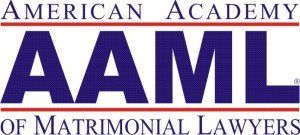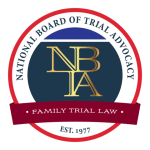RECENT NEWS
ATTORNEY MELISSA F. BROWN
BLOG SIGN UP
Blog Sign Up
MARTINDALE-HUBBELL AV RATING
SUPER LAWYERS RATING
For Attorneys
Melissa was one of two keynote speakers at the SC Family Law Intensive CLE in Asheville, NC, the first weekend of November 2018. These are her materials provided to the participants, and the materials include case law, ethics rules & useful forms.
On Friday, September 21, 2018, Melissa F. Brown is giving the above named presentation at the popular, annual continuing legal education program, Hot Tips from SC’s Coolest Family Law Attorneys, which she also co-hosts with Vance Stricklin. The attached document is a pdf of her PowerPoint Slides.
These documents accompany Melissa’s presentation on Friday, September 21, 2018, in Columbia, SC. These forms are designed to help potential clients identify all social media and other ESI accounts so any potential issues, risks, violations of state and federal law against the potential client or perhaps accidentally by a potential client can be discussed at the initial consultation.
UCCJEA CHARTS
Melissa F. Brown explains how to simplify the process of introducing text messages into evidence by utilizing inexpensive software that identifies the sender and receiver as well as the date and time of the message. Her recommendation is much better than trying to introduce a series of screen shots that often do not identify the sender, receiver or date and time of the message. Judges are appreciative and overcoming the authentication hurdle is easy. In addition, she explains how to organize otherwise cumbersome long email chains without affecting their authenticity and use these messages effectively at trial.
Melissa F. Brown amongst other prominent Family Law attorneys contributed on their favorite Mac apps in the Family Lawyer Magazine. Melissa wrote about PhoneView, a Mac app that costs $29.99, and amongst its benefits is its organization of text messages in an understandable, identifiable chronological presentation. Previously, we had to introduce cumbersome screen shots that were not always easy to follow. This program makes it much easier for a judge to read and quickly grasp the point a client wants to make regarding a text stream conversation.
Keynote presentation by Melissa F. Brown, Esq. given on November 5th at the AAML PreConference CLE, Chicago, IL.
Presenting Your Case Using Social Media: How To Protect Your Client & Yourself From Ethical Pitfalls
In October 2014, Melissa F. Brown will give an ethics technology presentation about Social Media and ESI at the ABA’s Fall 2014 Family Law Seminar in Stowe, Vermont. The paper accompanying her presentation is titled, “Presenting Your Case Using Social Media: How to Protect Your Client & Yourself From Ethical Pitfalls.” This article is part of a presentation that I am giving at the ABA Fall 2014 Family Law CLE in Stowe, VT.
Melissa Brown and Ken Raggio presented this material at the NM Bar 2013 Family Law Institute on October 11, 2013 in Albuquerque, NM.
Melissa explains the importance of preserving ESI, as well as how to obtain ESI from the opposing party.
Spoliation Letter Templates for preservation of ESI.
This introduction to Safety and Security in a Digital Age includes examples of scenarios that show the difficulty of using electronic evidence in family law cases and was presented by Melissa Brown and Ken Raggio at the AAML Mid-Year Conference in San Juan, Puerto Rico on March 19, 2013.
The American Academy of Matrimonial Lawyers hosted a conference this March, 2013 in which Melissa Brown spoke on the topic of Safety and Security in a Digital Age. Her article, previously published, has been updated and will provide valuable and useful information to both attorneys and clients alike.
Descriptions of useful apps for Family Law Attorneys that will not only organize your personal and professional lives, but also greatly enhance the management and research involved with your cases.
Melissa Brown presented this KeyNote presentation with Rick Robertson, Esquire, of Plano, Texas, at the Houston Family Law Trial Institute in May 2012.
Melissa Brown’s article published in the May 2012 issue of South Carolina Lawyer magazine. Article explains proper interaction between Guardians ad Litem and Custody Evaluators in contested custody actions.
This article was presented January 27, 2012 as part of the 2012 Guardian ad Litem Training and Update program in Columbia, South Carolina.
This powerpoint gives an overview of the complexities among the UCCJEA, UIFSA, PKPA, and Hague Convention provisions so that attorneys can easily answer difficult jurisdictional questions when handling complex multi-state or multi-national custody and support litigation. It contains useful flow charts and supports the larger jurisdictional chart on jurisdiction.
This jurisdictional chart unravels the complexities among the UCCJEA, UIFSA, PKPA, and Hague Convention so that attorneys can easily answer difficult jurisdictional questions when handling complex multi-state or multi-national custody and support litigation.
Presented June 3, 2011, at a local CLE for newly licensed attorneys practicing family law in Charleston, SC.
Presented June 3, 2011, at a local CLE for newly licensed attorneys practicing family law in Charleston, SC.
SC Bar CLE Solo Hot Tips Program, presented Friday, September 24, 2010.
The South Carolina Lawyer magazine, a publication of the South Carolina Bar, published Melissa F. Brown’s article “Safety and Security in a Digital Age” as its featured story. The article is pertinent to all lawyers and clients alike, and provides valuable information to protect oneself.
This handout of PowerPoint slides is the focus of Melissa Brown’s February 2010 presentation at the South Carolina Bar CLE “Top Trial Lawyers Tackle Evidence.” This presentation will teach litigators how to introduce and authenticate evidence posted on websites, including social networking sites such as Facebook, MySpace, LinkedIn, Twitter and others, to support a client’s position or impeach an opposing party or a witness.
Melissa F. Brown’s article, which was authored with the research and writing assistance of Ashley Simons, a 2L student at the Charleston School of Law, was published in the Winter 2010 issue of The Family Law Review, a publication of the Family Law Section of the State Bar of Georgia. It discusses the growing misuse of technology in family law litigation. In addition to exploring the various ways litigants are falling victim to an opposing party’s tactics, this article further explores how certain states, particularly Georgia, are addressing this vastly growing technological phenomenon.
This PowerPoint Presentation is part of a presentation Melissa Brown gave to the Family Law Section of the South Carolina Bar during the 2010 Annual Convention. Focusing on the growing misuse of technology in the family law arena, this presentation provides an in-depth discussion of SpoofCards, TrapCall Cards, spoofed text messages, GPS surveillance, spyware and KeyKatchers, as well as applicable case law.
This handout of PowerPoint slides accompanies the article referenced below, To Tweet or Not to Tweet: Social Networking- Help or Hindrance to the Family Law Practice?, and was presented by Melissa Brown, in January 2010, at the LEI National CLE Conference in Vail, Colorado. Focusing on the practicality and importance of Twitter in the legal profession, this presentation not only provides step by step instruction on setting up a Twitter account, but further explores the important considerations attorneys must contemplate when engaging in this type of online social networking.
This article was the focal point of Melissa Brown’s January 2010 presentation in Vail, Colorado to the LEI Family Law Group at the National CLE Conference.
This handout includes a list of relevant 2009 South Carolina cases as well as PowerPoint slides. These materials were presented by Melissa Brown at the Dixon Hughes PLLC Annual Litigation Conference to members of their litigation team comprised of CPAs from South Carolina, North Carolina, Florida and West Virginia. The purpose of this presentation was to educate forensic financial experts on recent case law relevant to their expertise, as well as to address the valuable services these professionals provide to family law attorneys.
This article discusses using the South Carolina Rules of Evidence, statutes and case law to lay the proper foundation or to attack an improper foundation when a child’s out of court statement is offered into evidence at trial.
This article discusses the excited utterance hearsay exception and its particular relevance to Family Law issues.
This article discusses how this software enables attorneys to create timelines for use when meeting with clients and at trial.
This article discusses both the impact of and distinction between intrinsic and extrinsic fraud upon a Family Law case.
This article addresses federal law’s post-divorce health insurance coverage as well as its impact, cost and potential danger to the employed spouse’s soon to be ex-spouse.
There is a federal law that affects gun owners subject to certain restraining orders. In states where many people own guns, especially for recreation, it is important for Family Law attorneys to understand how law might unintentionally impact a client and how to avoid this dilemma.
This article discusses the frightening reality of information in Family Court files that is available to the public and the inherent danger in having parties’ private finances, assets, debts and the like available to the public and how to protect your private information.
This article discusses the shocking reality of people who try to argue facts in one court and then go to another court and argue just the opposite. An example of this is claiming one is unmarried in a Bankruptcy Court proceeding to get debts discharged while at the same time arguing in Family Court that the same person is married and entitled to assets and support.















